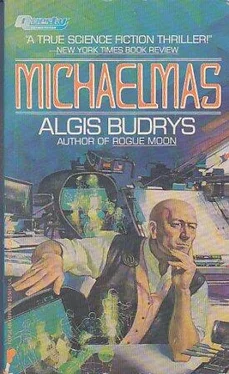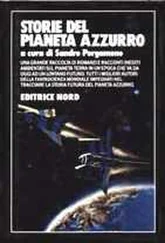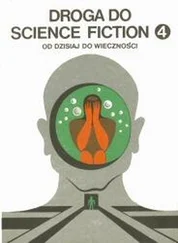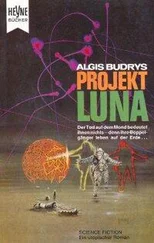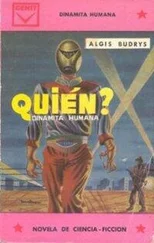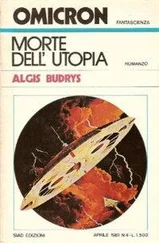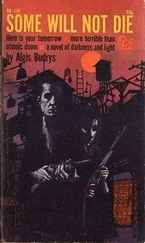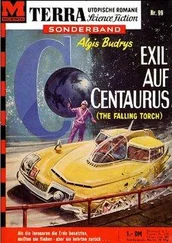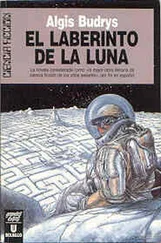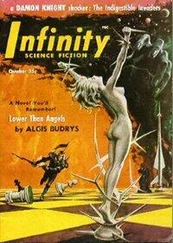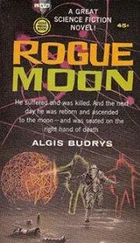“Within the hour.”
“It sounds more and more as if someone’s told her a tale and she’s attempting to verify it.”
“Exactly.”
“Yes.” The corners of Michaelmas’s mouth pulled back into his cheeks. He pictured Shell: a short, wiry man with a long fringe of hair and a little paunch, stumbling about his apartment and making breakfast coffee. He would probably make capuccino, assembling the ingredients and the coffee-maker clumsily, and he would take the second cup into the bathroom. Sitting on the stool with his eyes closed, sipping, he would mutter to himself in short hums through his partially compressed lips, and when he was done he would get up, find his phone where he’d left it, tell Viola Hanrassy two or three ways it might have been done undetectably, punch off, carry the empty cup and saucer to the dishwasher and very possibly drop them. Michaelmas and Shell had been classmates once. Shell had been one of the Illinois Institute of Technology students who intercepted and decoded Chicago police messages in the late 1960s, but time had passed. “Well.” Michaelmas looked downward. Tunis was much larger, dimmer, and off to the right. The African coastline was falling away toward Libya, so that they would still be over water for some distance, but Cité d’Afrique was not too far ahead in time. He glanced at his wrist. They’d land at about 1400 hours local time, he judged.
“The Norwood interview’s over,” Domino said. “Campion did roughly the same thing a few more times. It’ll be vicious when it hits.”
“Yes,” Michaelmas said ruminatively. “Yes, I suppose it could be.” He watched the office cabin door open. The camera operator and Clementine came out. She walked with her head down, her mouth wryly twisted. She took a vacant forward seat beside her crewman and did not once glance farther up the aisle. Campion and Frontiere were lingering in the cabin doorway. Campion was thanking Frontiere, and Norwood over Frontiere’s shoulder. Frontiere did not look entirely easy. When Campion turned away to come up the aisle, Frontiere firmly closed the door without letting Norwood out.
Michaelmas realized Campion was deliberately heading straight for him. Campion’s features had a fine sheen on them; that faint dew was the only immediate token of his past half hour’s labour. But he dropped rather hard into the seat beside Michaelmas, saying, “I hope you don’t mind,” and then sighed. He loosened his collar and arched his throat, stroking his neck momentarily between his thumb and fingers. “Welcome to the big time, Douglas,” he said in a fatigued voice.
Michaelmas smiled softly. “You’re doing well, I hear.”
Campion turned to him. “Coming from you, that’s a real compliment.” He shook his head. “I graduated today.” He shook his head again, leaned back, and stretched his legs out in front of him, the heels coming down audibly. He clasped his hands at the back of his head. “It’s hard, doing what we do,” he reminisced, looking up at the ceiling. “I never really understood that. I used to think that doing what you did was going to be easy for me. I’d grown up with you. I knew every mannerism you have. I can do perfect imitations of you at parties.” He rolled his face sideward and smiled companionably. “We all do. You know that, don’t you? All us young punks.”
Michaelmas shrugged with an embarrassed smile.
Campion grinned. “There must be ten thousand young Campions out there, still thinking that’s all there is to it.”
“There is more,” Michaelmas said.
“Of course there is.” Campion nodded to the ceiling. “There is,” he said with his right elbow just brushing the shoulder of Michaelmas’s jacket. “We’re the last free people in the world, aren’t we?”
“How do you mean that?”
“When I got a little older in this business, I wondered what had attracted me to it. The sophomore blahs, you know? You remember what it’s like, being junior staff. Just face front and read what they give you. I used to think I was never going to get out of that. I used to think the whole world had gone to Jell-O and I was right there in the middle of it. Nothing ever happened; you’d see some movement starting up, something acting like it was going to change things in the world, then it would peter out. Somebody’d start looking good, and then it would turn out he had more in the bank than he’d admit to, and he was allowed to graduate from his college after his father built a new gym. Or you’d want to know more about this new government programme for making jobs in the city, and it would turn out to be a real estate deal.”
“You began to realize the world had gotten too sophisticated for anything clear-cut to ever happen. And you know it’s only the simple things that make heroes. Give you something to understand in a few words; let you admire something without holding back. Right? How are you going to feel that, when you’re stuck in Jell-O and it’s obviously just going to get thicker and thicker as time passes? If it wasn’t for the hurricanes and the mining disasters, as a matter of fact, you might never know the difference between one day and the next.”
“I almost got out of it then. Had an offer to go into PR on the governor’s staff. Said no, finally. Once you’re in that, you can’t ever go back into news, you know? And I wasn’t ready to cut it all the way off. I thought about how, when I was a kid, I thought Laurent Michaelmas made the news, because you were always where it was happening And I said to myself, I’d give it one last all-the-way shot; I’d get up there where you were, so I wasn’t just stuck in some studio or on some payroll. Be cool, Douggie, I said to myself. Act like you’re on top, aim to get on top. Get up there - get out to where they have to scurry when they see you coming, and they open the doors, and they let you see what’s behind them. Get out where you rub elbows and get flown places in private equipment.” Campion’s eyes fastened on Michaelmas’s. “That’s it,” he said softly. “It’s not getting at the news. The news doesn’t mean anything. It’s being a newsman. It’s getting out of the Jell-O. And now we both know that.”
Michaelmas looked at him closely. “And that’s what you’ve come to tell me,” he said softly. “To get my approval.”
Campion blinked. “Well, yes, if you want to put it that way.” Then he smiled. “Sure! Why not? I could have a worse father figure, I guess.”
“I wouldn’t know about that, Douggie. But you don’t need me any more. You’re a big boy now.”
Campion began to smile, then frowned a little and looked sidelong at Michaelmas. He bit his lip like a man wondering if his fly had been open all along, interwove his fingers tightly before him, stiffened his arms, turned his wrists, and cracked his knuckles. He began to say something else, then frowned again and sat staring at his out-thrust hands. He stood up quickly. “I have to cover a few things with those UNAC people,” he said, and walked over to the bar, where he asked for Perrier water and stood drinking it through white lips.
Domino said : “Allen Shell has called Hanrassy and given her a few alternatives. One of them requires live voice from Kosmgorod and a telemetry simulating component. The hardware cannot be assembled from off-the-shelf modules. It would have to be hand-built from bin parts. I imagine a knowledgeable engineer examining one could decide where its builder had gotten his technical training and done his shopping.”
Which would be good enough for all practical political purposes. Michaelmas grunted. “And then what happened ?”
“She put in a call for Frank Daugerd of McDonnell-Douglas. He’s on a fishing vacation at the Lake of the Ozarks and has his phone holding calls, but his next check-in is due at seven am. That will be 1400 hours at Cité d’Afrique. She’s not wasting the interval. She ordered an amphibian air taxi from Lambert Field and had it dispatched down to Bagnell Dam to wait.”
Читать дальше
